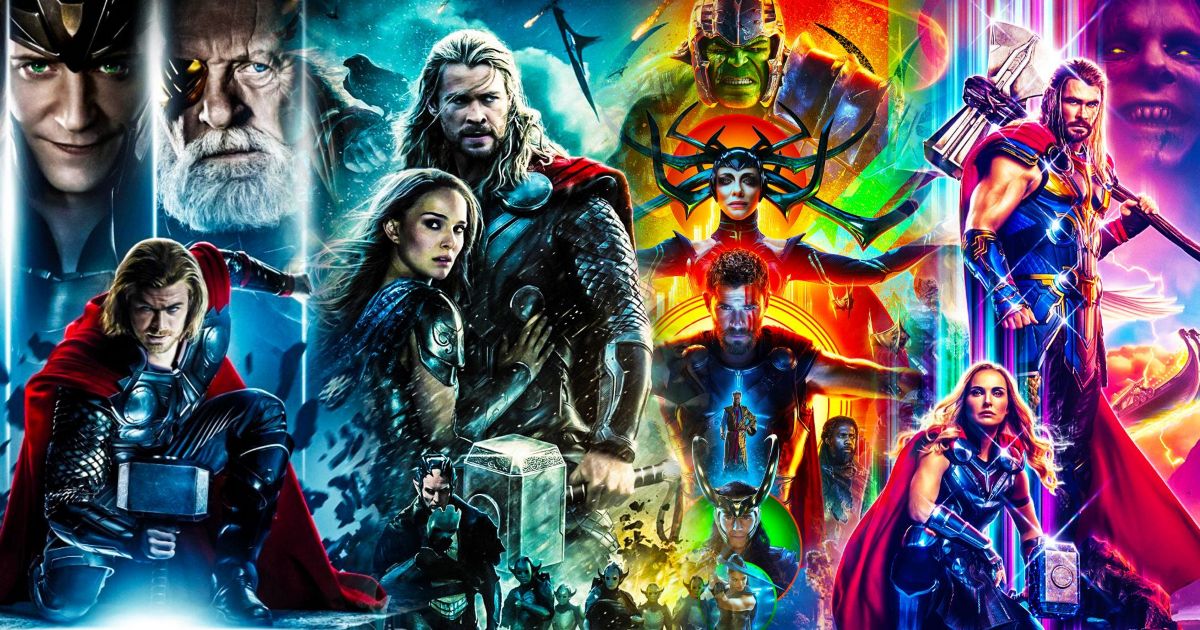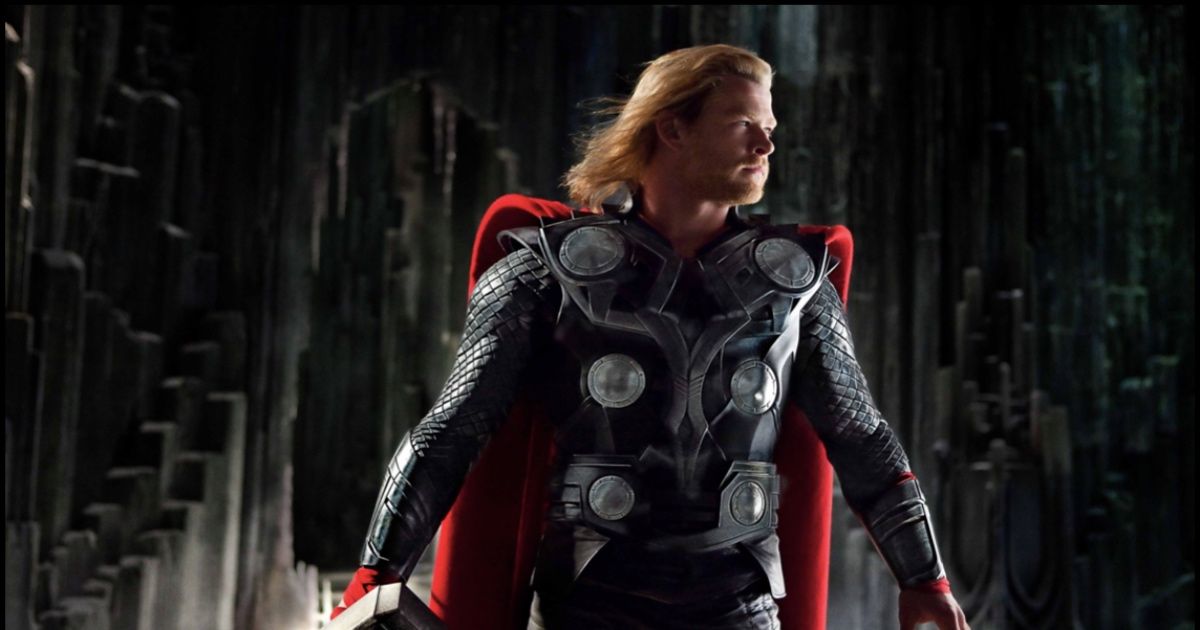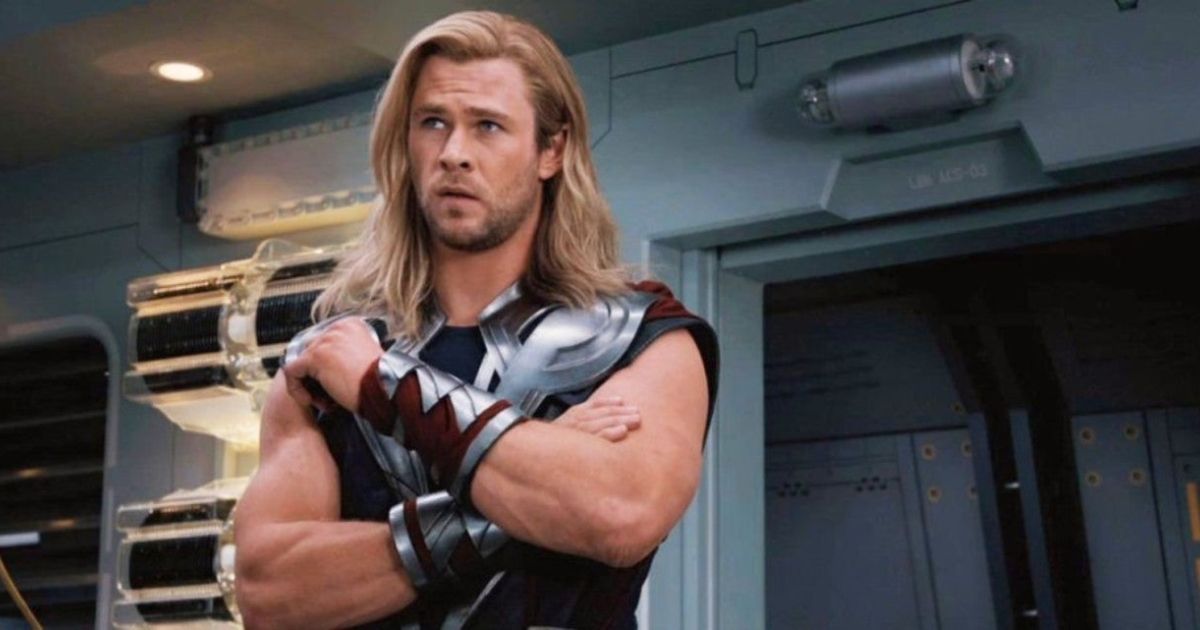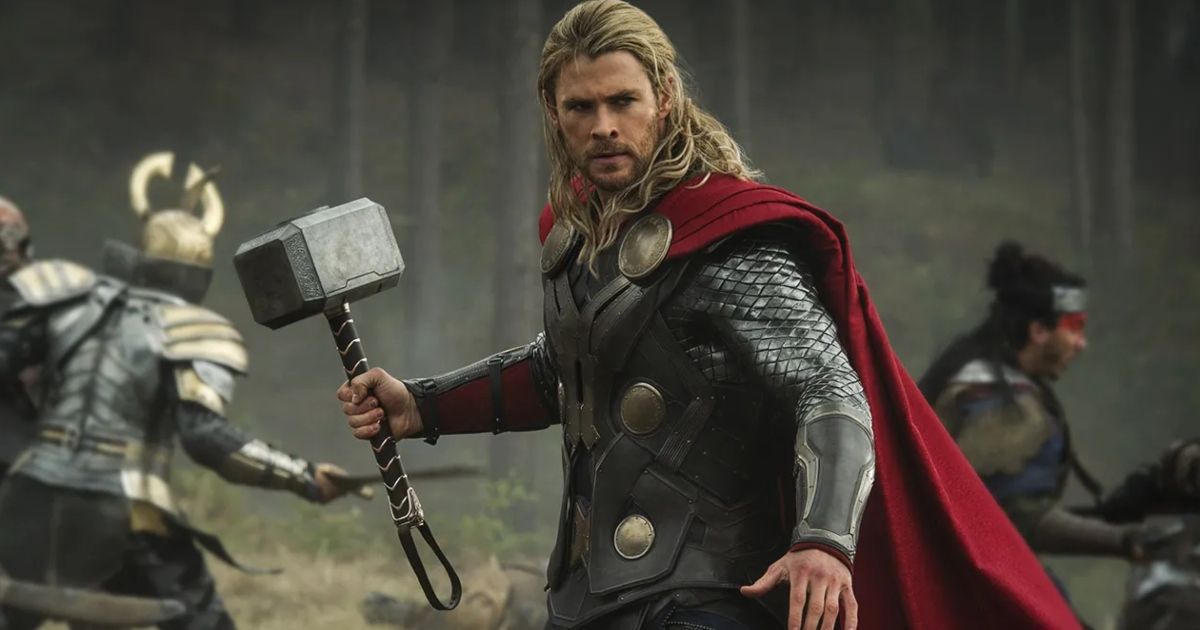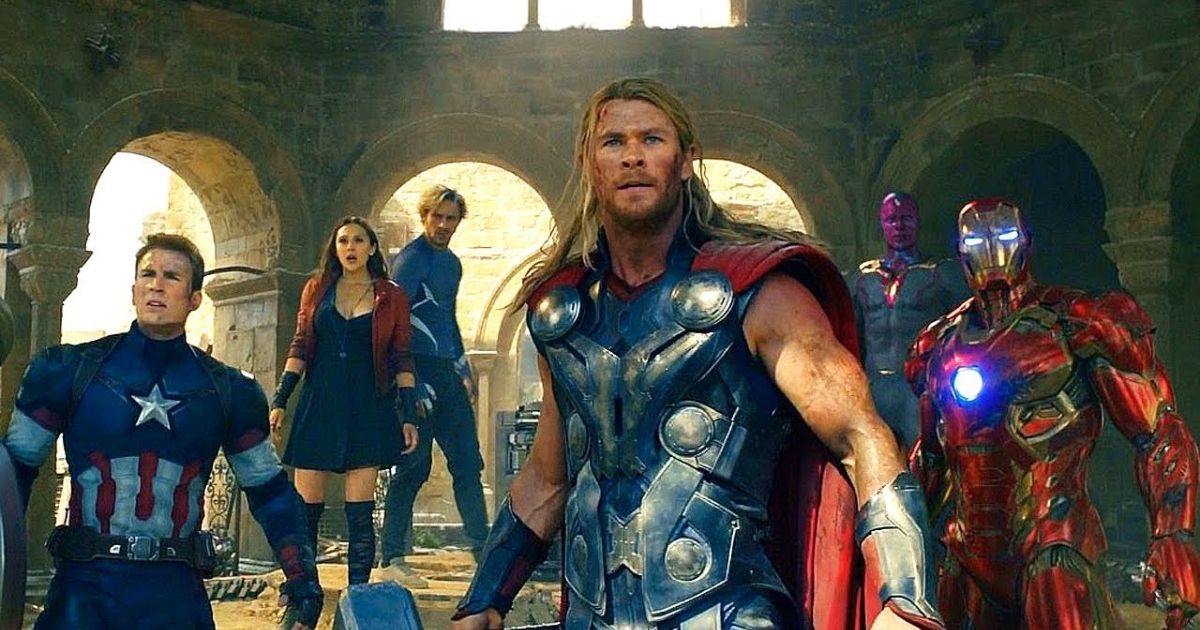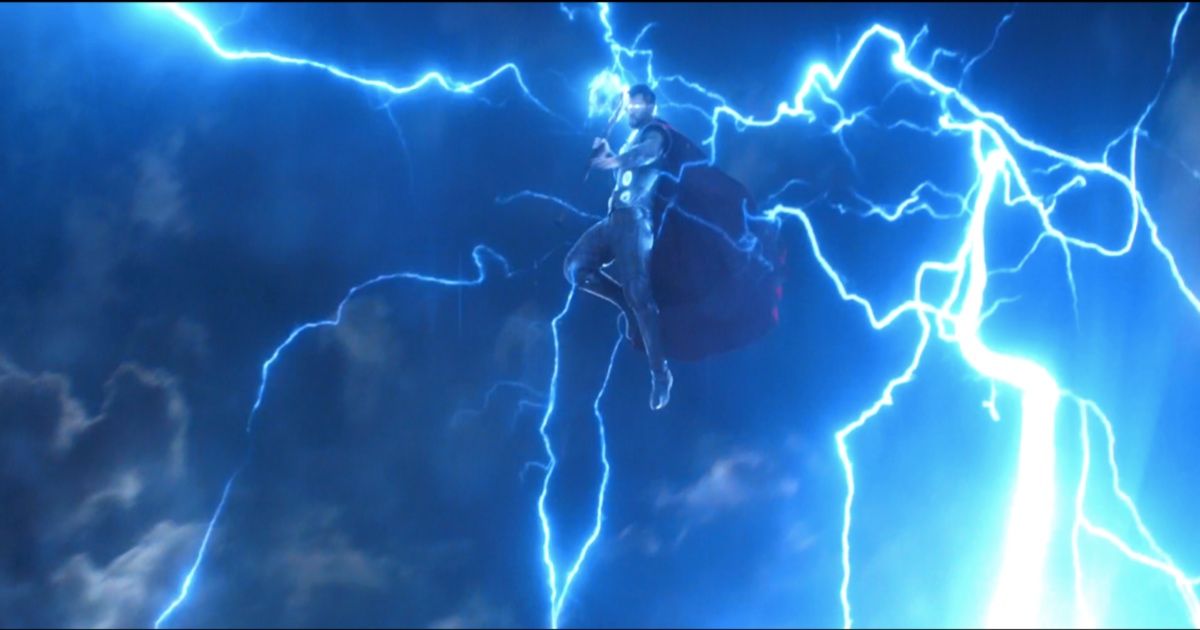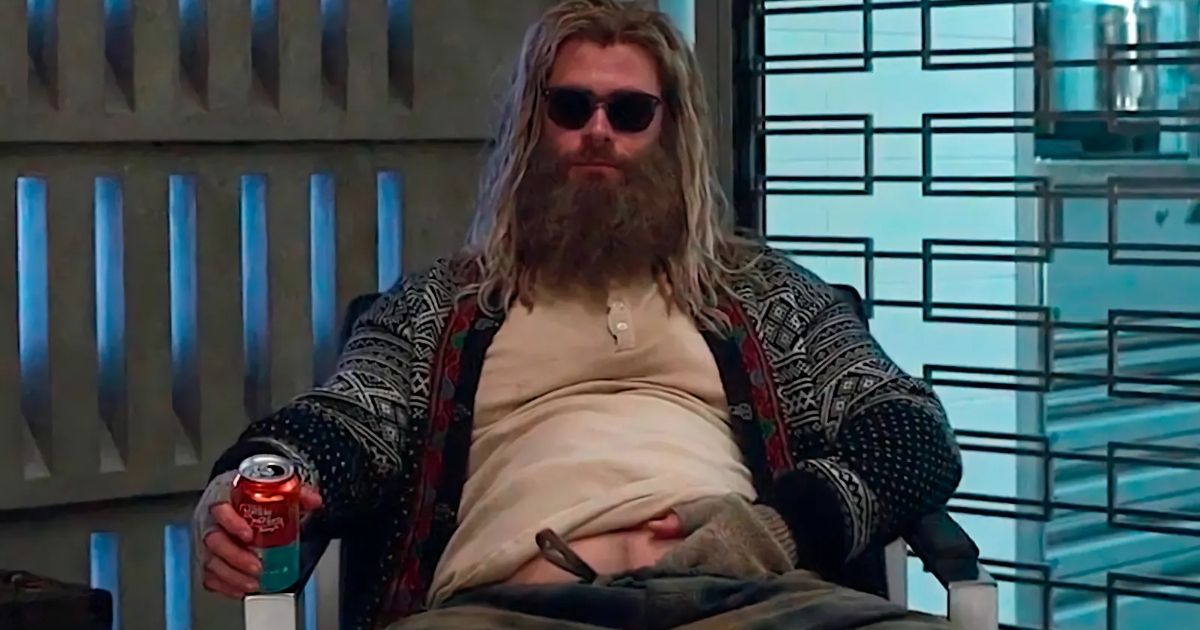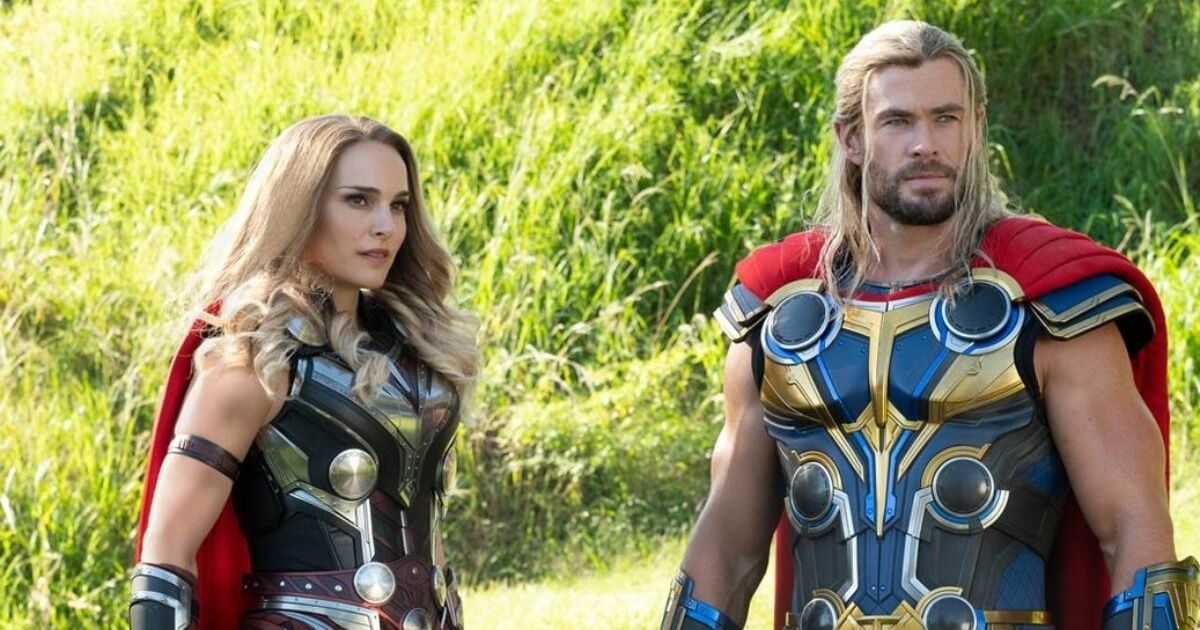Of all the Avengers, Thor has one of the most fascinating journeys both in the MCU and behind the scenes. The character and franchise were seen as a big task for Marvel Studios, getting audiences to accept more fantastical elements in a universe that had strictly been science fiction.
While his first movie was a hit, and the character certainly broke out due to star Chris Hemsworth's charisma and physical appearance, he was not as popular as Iron Man or Captain America. Yet the release of Thor: Ragnarök and the character's major role in Avengers: Infinity War shifted the character in the public consciousness, and the character seem to find new life and was the first MCU solo hero to be given a fourth film.
This shift in Thor's popularity also creates a rather unique character arc, one that sees the God of Thunder grow and shift on screen the same way the producers are reworking him behind the scenes becomes a meta-story about Thor not being what the world (or the audiences) thinks he should be and growing into something more. The story of a prince who is born to be king becomes the story of a man learning he does not need to be defined by what others see him as.
How to Watch the Thor Movies in Order
- Thor
- The Avengers
- Thor: The Dark World
- Avengers: Age of Ultron
- Thor: Ragnarök
- Avengers: Infinity War
- Avengers: Endgame
- Thor: Love and Thunder
Thor
Thor's first MCU appearance is of course, in his solo origin film Thor. The movie combines elements from both his original Marvel Comics origins and the Ultimate Comics reworking. Thor is the arrogant prince of Asgard who is set to become king. He launches an attack on the Frost Giants which results in a conflict, to which his father Odin banishes him to Earth without his power. To regain his abilities, he must prove himself worthy and must do so before his adopted brother Loki begins his reign on Asgard. Thor learns humility, grace, and selflessness with his time on Earth thanks in part to the help of astrophysics Jane Foster who becomes his great love.
The film plays out very much like a classic fable, similar to the Norse myths that the Marvel Comics drew from, with Thor learning what it truly means to be a hero by living among his people. In part of his quest to become king, Thor needs to learn who and what he is fighting for, and to do so he must live and walk among them. By the end of the film, Thor sacrifices his own desire to be with Jane to save the Frost Giants from annihilation. The prince of Asgard has taken his step from being a warrior to a hero.
The Avengers
Thor then appears in The Avengers, having been sent to Earth by Odin using Heimdall's dark magic to retrieve Loki and the Tesseract. Thor must team up with Iron Man, Captain America, Black Widow, Hulk, and Hawkeye to stop Loki from his alien invasion. While at this point Thor knows Loki's sinister intentions, he still has a great love for his brother which will define much of his arc over the MCU. Despite all of Loki's faults, Thor still cares for his brother and hopes they can be friends like when they were kids.
Thor appears to be the character that writer and director Joss Whedon had the most trouble with, as the character has less to do than the other heroes in both The Avengers and Avengers: Age of Ultron. However, the film does define some key elements of Thor that will be important later on, particularly his relationship with The Hulk. Thor's fight with the Hulk on the Hellicarrier is the first of many attempts between the two powerhouses to see who is stronger, and the hints of a buddy dynamic brew in a simple punch from the Hulk off-screen. Thor is now starting to form bonds with people who will grow and define him more as a hero.
Thor: The Dark World
Thor's second solo film, Thor: The Dark World, continues the arc set forth by Thor's first film, having the character pulled between his duties to Asgard as its future king while also his own desires to return to Earth and be with Jane Foster. The arrival of the Dark Elf Malekith and his quest to retrieve the Infinity Stone known as the Aether will bring Thor's two worlds together as he must bring Jane Foster to Asgard.
The film is the second film in what was originally planned to be a trilogy of Thor solo films, with the film ending with Thor deciding he no longer wants to be king and return to Earth and be with Jane Foster, all the while not knowing Loki has replaced Odin on the throne of Asgard setting up what was intended as a more serious Thor: Ragnarök. Like many real-life princes before him, Thor chooses love over a throne and shows that the character audiences first met in his origin story no longer craves battle.
Avengers: Age of Ultron
Avengers: Age of Ultron loosely picks up on plot lines from both Thor: The Dark World and The Avengers to give Thor some sense of continuity. His status on Earth to be with Jane Foster now means he can work alongside The Avengers more freely, as he has formed strong bonds with his fellow team members: particularly Captain America and Iron Man.
Thor is the character with the least to do in Avengers: Age of Ultron, as he quickly departs the second act to go on a vision quest that was cut down quite a bit from the theatrical cut. The majority of the scene exists in a deleted scene, and it mainly exists to set up the future of the MCU and the Infinity Saga. However, it is worth noting it is in this film that the first hints of Thor's more comedic personality are hinted, likely having picked up some humor from his time interacting with Tony Stark and Natasha Romanoff. Thor's dialogue has begun to shift from a Shakespearian style of speech to a more human one, due to his time on Earth with Jane Foster and The Avengers.
By the end of the film, Thor departs Earth to find out who is after the Infinity Stones. This takes him off the board for the Earthbound conflict of Captain America: Civil War, while also setting up him for his film, Thor: Ragnarök. It also firmly establishes Thor as the connective tissue that will unite the Earthbound Avengers with the cosmic heroes The Guardians of the Galaxy.
Thor: Ragnarök
Thor: Ragnarök marks a tonal shift for both the Thor franchise and the character, in many ways acting as a restart for the series by keeping elements that people like (Loki, Heimdall) while disregarding others (The Warrior's Three, Asgard) to make for something new. The film ditches the high fantasy of the first two films and instead goes for a more 80s sci-fi feel similar to Flash Gordon. Director Taika Waititi takes Thor's hammer away from him as well as breaks him and Jane Foster up to really examine who Thor is without the two elements that have defined so much of who he is.
Yet despite the tonal shift and the apparent clearing of the board of previous Thor films, the movie does maintain a thematic link to the previous films, namely in Thor's journey to becoming king. Thor finally becomes King of Asgard as he intended to in the first film, but in doing so he must destroy the physical location of Asgard.
The message of Asgard not being a place, but rather a people, is in line with Thor learning to fight for the people of Earth in the first movie. He has finally become king, but is a different man and will need to be a different type of king for his New Asgard. This essentially ends Thor's original trilogy arc, laying the groundwork for a new arc that examines what happens to him after being king.
Avengers: Infinity War
Avengers: Infinity War kicks off with Thor, Hulk, Loki, and the refuges of New Asgard being attacked by Thanos. Thor eventually meets up with the Guardians of the Galaxy and teams up with Rocket Raccoon and Groot to retrieve a new weapon that can kill Thanos. Thor displays his true strength and the heart of a hero but also begins a tragic story for the character.
Avengers: Infinity War perfectly blends the more comedic Thor setup in Thor: Ragnarök with the character's more noble warrior bravado in his first two solo films. There is a real sadness in Thor's journey, as he acknowledges he has lost everyone from his brother, his mother, his father, his home planet, half of his people, and even the love of his life. Thor must defeat Thanos to achieve a sense of purpose, and while he displays the scope of his power like never before in the end the story is a tragedy. Thor still fails and loses once more but this time the loss cost half of the universe to die. This is a defeat that Thor will carry with him for years.
Avengers: Endgame
Avengers: Endgame picks up five years after the events of Avengers: Infinity War, and sees Thor as the depressed king of New Asgard. Thor has let himself go, drinks constantly to drown out the pain he feels for letting everyone down, and feels unworthy. Yet the movie shows that despite his new physical appearance and his depression, Thor is still worthy. This defeat, this feeling of sadness he has carried with him, does not define him.
Avengers: Endgame marks another major shift for Thor as a character, and in many ways seems to be a commentary on how Marvel has treated him. They've spent years trying to make his story about him becoming king because that typically is how Thor's storyline plays out in the comics. Yet as the MCU grew and evolved, so did Thor beyond his original conception in the franchise. The film ends with Thor putting Valkyrie in charge of New Asgard and him going off with the Guardians of the Galaxy to find a new purpose. He is a new man, with a new journey and one that will become clear in his next film.
Thor: Love and Thunder
The most recent appearance by the God of Thunder is Thor: Love and Thunder. The movie brings back Jane Foster and delves into the relationship the two had, revealing they broke up sometime before the events of Avengers: Age of Ultron. Now stricken with cancer, Jane is given the power of Thor, but the use of the power is killing her slowly. The movie digs deep into the concept of godhood, Thor's status as a god, and what it means for him to love a mortal. He will lose her, despite his best wishes. In Thor's first MCU appearance, Jane taught Thor to be a hero and now the end of their journey together she teaches him to fully love.
By the end of the movie, Thor adopts Love, the daughter of his enemy Gorr the God Butcher. The franchise has now come full circle, with Thor taking on a similar position to his father Odin. Odin also adopted Loki, the son of one of his enemies. Yet Thor will not make the same mistakes as his father, instead of raising Love for the eventual role of ruler, he gives her some semblance of a normal home.
Thor was meant for greatness, but that greatness was not to be a king but instead to be a father. Thor has gone from a spoiled prince to a responsible father and has grown up. Thor's next story in the MCU remains to be seen, but the character has undergone one of the most interesting journeys of any hero in the franchise.

